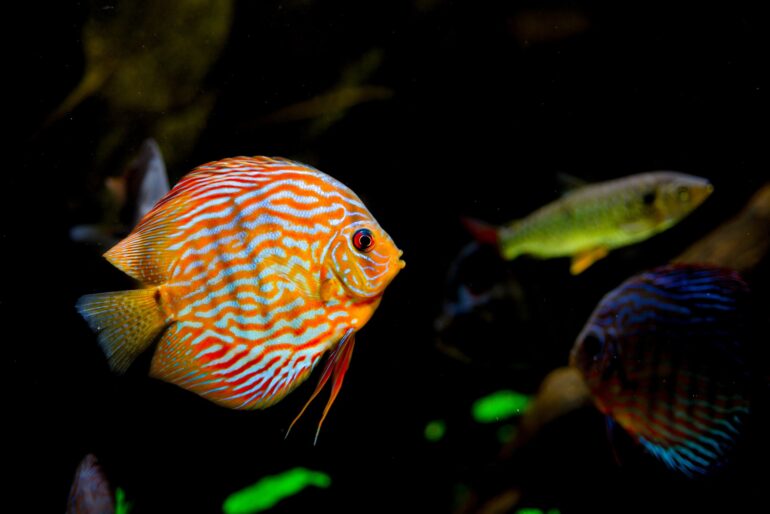TL;DR:
- Artificial intelligence (AI) has been used to accurately count fish stocks in a pilot region of the Western Indian Ocean.
- The algorithm developed by the Wildlife Conservation Society (WCS) utilizes satellite data and machine learning.
- The AI tool is cost-effective and can be easily implemented by national governments and local authorities.
- It provides information on the status of fish stocks and the potential for recovery.
- The tool also calculates the financial impact of managing fisheries.
- Developing nations with a high reliance on fish for food and income can benefit from this technology.
- The AI simplifies the process by using data points such as water temperature and existing fisheries management.
- It empowers communities to make informed decisions about their fish resources.
- The goal is to achieve a balance between human needs and ocean health.
- Overfishing is a significant concern, and the AI tool can aid in addressing this issue.
- The WCS is seeking funding and partnerships to expand the use of AI in fisheries management.
- Scientists have urged action against overfishing in European waters.
- The widespread application of AI in marine conservation has the potential to protect ecosystems and support human communities.
Main AI News:
Counting global fish stocks has found a promising ally in the realm of artificial intelligence (AI), offering potential cost savings in research expenditures and aiding fishers in developing nations. The Wildlife Conservation Society (WCS) and their team of researchers have successfully devised an algorithm that achieved an impressive 85% accuracy in counting fish stocks within a pilot region of the Western Indian Ocean, using satellite data and machine learning. This AI tool, characterized by its affordability and ease of implementation, holds the potential to provide national governments and local authorities with a comprehensive understanding of their aquatic resources.
According to Tim McClanahan, Director of Marine Science at WCS, this innovative tool not only assesses the status of fish stocks but also predicts the time required for their recovery using various management strategies. Additionally, it enables stakeholders to evaluate the financial implications of fishery management, including potential losses or gains. In the Western Indian Ocean region alone, the economic impact of managing fisheries is estimated to range between $50 million and $150 million annually.
In contrast to wealthier nations that allocate substantial financial resources to calculating fish stocks, developing countries, particularly those in Africa and Asia, face prohibitive costs despite having a significant dependence on fish for sustenance and livelihoods. However, the introduction of this novel algorithm could address this disparity, opening avenues for more effective management and resource allocation, as highlighted by the WCS.
The primary objective, as stated by Mr. McClanahan, is to empower communities with the necessary information to gauge the condition of their fish resources and make informed decisions regarding their management. This long-term vision seeks to establish a balance between human needs and the well-being of ocean ecosystems, benefiting not only current generations but also future ones.
Harnessing the power of AI would streamline the process of calculating fish stocks, requiring a simple input of data points such as water temperature, shore distance, existing fisheries management, and water depth. With these parameters, a swift and highly accurate assessment can be obtained. Simon Cripps, Executive Director of Marine Conservation at WCS, emphasizes the intrinsic value of this model, as it allows managers, scientists, and local communities to ascertain the health of a fishery and its ability to sustain the livelihoods of coastal populations, particularly during times of crisis.
By unveiling the status of fisheries, communities, and managers gain the necessary insights to devise strategies that enhance fish stocks and fortify the resilience of local communities, fishing industries, as well as national and local economies. As WCS now seeks funding and partnerships to expand AI’s application on a larger scale, it is hoped that this groundbreaking development will contribute to addressing the pressing challenges posed by overfishing.
In 2020, over 300 scientists, including 50 Irish experts, urged Virginijus Sinkevičius, EU Commissioner for the Environment, Oceans, and Fisheries, to take decisive action against overfishing. Their research findings indicate that overfishing affects at least 38% of fish stocks in the North East Atlantic and Baltic Sea, while the figures escalate to a staggering 87% in the Mediterranean and Black Sea regions. This pressing call for action further underscores the urgency of implementing effective and sustainable management practices.
As the convergence of AI and marine conservation offers a beacon of hope, organizations like WCS are poised to drive progress through strategic funding and collaborative partnerships. The fusion of advanced technology and ecological stewardship holds immense potential in safeguarding our oceans and ensuring the continued prosperity of both marine ecosystems and human communities.
Conlcusion:
the successful integration of artificial intelligence (AI) in accurately counting fish stocks presents significant implications for the market. This innovative technology offers cost-effective solutions that can revolutionize the fisheries industry by providing real-time data on fish resources, enabling more informed decision-making by national governments, local authorities, and fishery managers. The AI tool’s ability to assess the health of fish stocks, predict recovery timelines, and calculate financial impacts allows for more efficient resource allocation and improved sustainability practices.
Moreover, the potential for wider adoption of AI in fisheries management opens up opportunities for technology providers, data analytics firms, and research institutions to collaborate and develop scalable solutions. As the market seeks to address pressing challenges such as overfishing, the convergence of AI and marine conservation presents a promising avenue for fostering ecological resilience, supporting local communities, and driving economic growth in the fishing industry.

